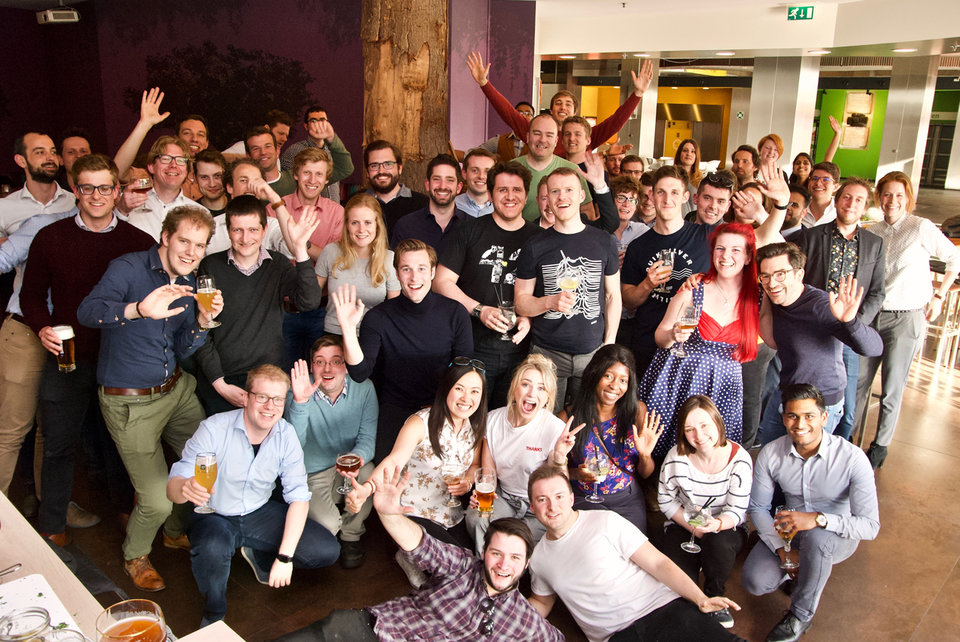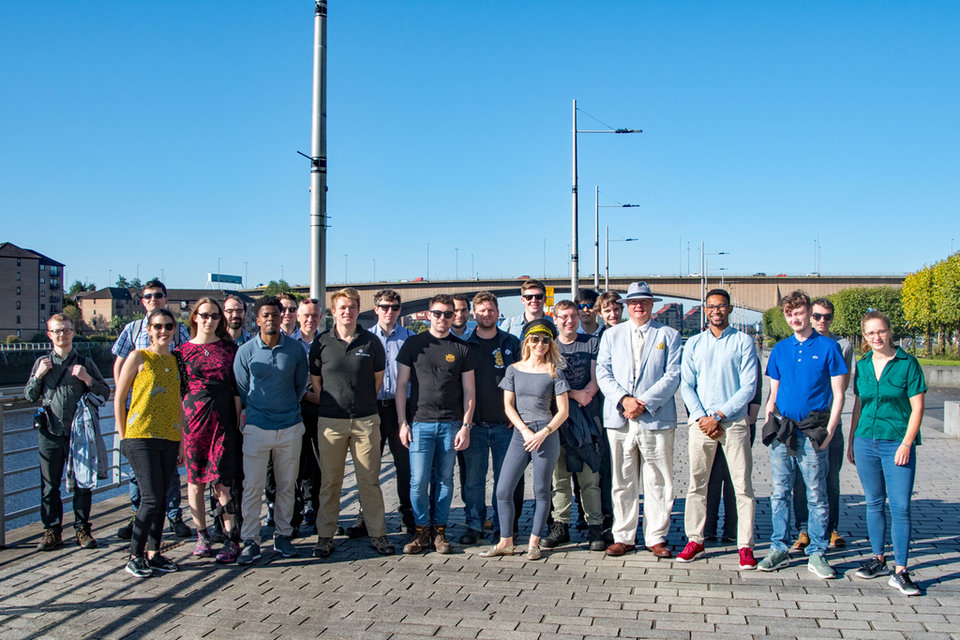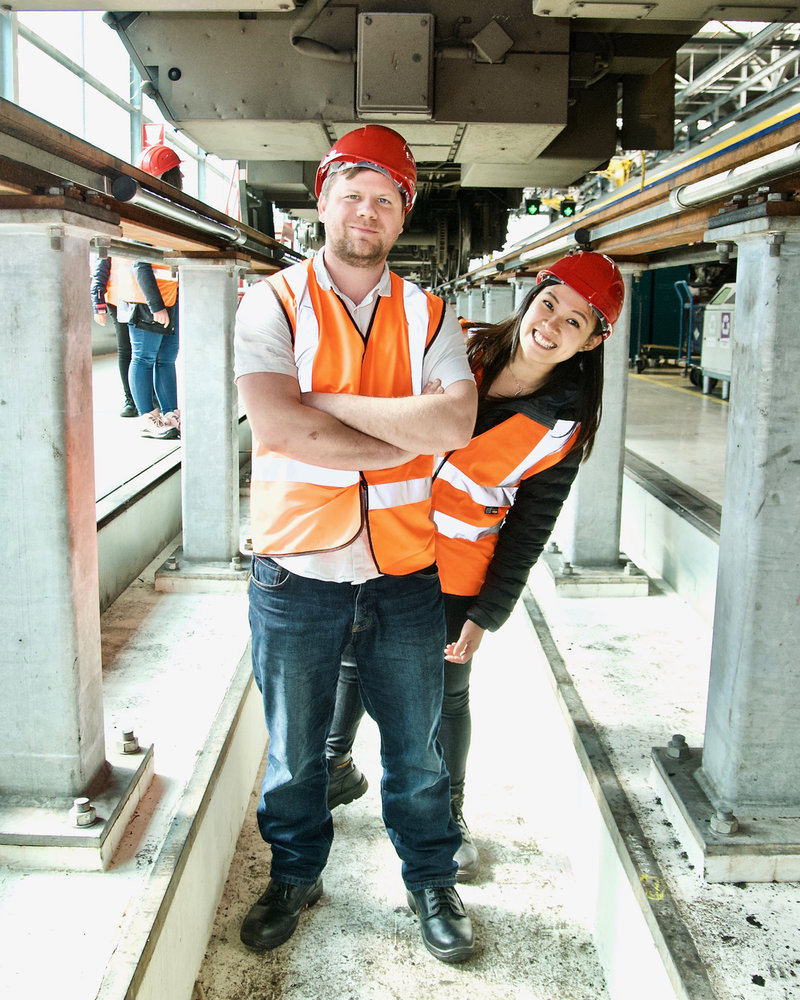Andrew Tunnicliffe: What are the challenges youngsters face in the industry today?
Paul Case: Investment in staff attraction and development is, sadly, often seen as one of the first things to go in an economically or politically uncertain or turbulent environment. Given the ongoing uncertainty in the UK, this is certainly a challenge both professionally and personally to young professionals in rail.
It’s important the industry takes a long-term view to attract and develop talented staff. We hope that, by giving young professionals early opportunities to build networks and learn lessons from other industries, they can take these lessons with them as they advance in their career and recognise, as they become industry leaders, how important these early career opportunities are to create a lasting, committed and talented workforce.
Tell us a little about YRT and how it is helping attract and support young professionals of the future?
The initiative was established after the IMechE and YRP delivered two sell-out joint technical tours to the Netherlands in 2018 and Munich in 2019. These tours, which hosted over 80 delegates, generated significant interest and demand with over 70 young professionals requesting a place in Munich for just 50 available places.

Netherlands – Networking Group. Image: YRT
As well as organising tours for young professionals in the UK, YRT acts as the point of contact for professionals and organisations from countries who might wish to visit and learn from our own industry. In mid-2019, YRP helped arrange and facilitate a month-long tour for 42 ‘future leaders’ from CRRC Corporation in China. The tour took in seven cities, more than 30 unique visits and presentations and four formal networking events with members of YRP.
What is the thinking behind YRT?
The demand for, and success of, tours to the Netherlands and Munich demonstrated there was a need for railway study tours catered towards young professionals. While several organisations were offering tours, they were often narrow in scope or catered towards more senior professionals. We feel these tours offer huge early career benefits, both in learning and networking opportunities, which delegates can take with them throughout their career.
All our tours are subsidised through our supporters and soon to be confirmed corporate partners. We don’t believe cost should exclude anyone, so we seek to make them as affordable and cost-effective as possible. This makes them more attractive to employers generous enough to fund their employees, and affordable enough for delegates who must fund their tours.
Our tours are open to young professionals working within the industry, whatever their role. We also seek to arrange a range of visits and presentations during our tours which cover a range of topics and, for the most part, are broader in scope so all our delegates can learn something of value.
What can those attending expect to do and see?
When organising tours YRT tries to provide a broad range of activities for delegates, balanced between technical and professional tours with rail industry partners, networking events and cultural experiences.
Our tours include visits to control centres, operational facilities, test tracks, museums, research centres and manufacturing plants. We also try to organise and offer a range of cultural and networking opportunities.

Scotland Tour – Group. Image: YRT
Giving this balance is important. It’s very easy to be overloaded with information; we want our delegates to have time to fully immerse themselves in the tour, absorb the learning opportunities and make real and long-lasting relationships with fellow delegates and colleagues they meet.
You’ve also hosted reciprocal events, tell us a little about them?
We were approached by Prague-based International Study Programmes (ISP) who had been engaged by international business school, Suzhou Business School, on behalf of CRRC Corporation in China. They wanted to arrange a month-long tour of the UK rail industry for 42 professionals.
I worked closely with ISP and colleagues across the UK to arrange over 20 unique tours across seven cities (from London to Glasgow). Highlights included a half-day of presentations on railways attended by the Chinese Counsel based in Manchester, with director transport for the North, Tim Wood, delivering the keynote presentation and, in London, a site tour of the new Paddington Crossrail station and MTR Crossrail depot. The tour included four formal evening networking events with members of YRP and reciprocal presentations from colleagues at CRRC.
The tour was so well received that CRRC and the Suzhou offered to host a YRT visit, which we hope to take up in 2021.
What are the future plans and hopes for the initiative?
As an organisation, we’ve already progressed far more than we anticipated. We’re on the cusp of launching our website, we’re shortlisted for the Rail Business Awards Education and Learning Excellence award in February 2020 and we’re hopefully going to announce our first corporate partner in January. We also recently appointed our first board of volunteers and established our formal set of guiding principles.
Our current ambition is to organise two tours a year. However, we’ve started drafting concepts for a possible third tour, a ‘mentorship tour’. Many of our delegates comment on the opportunities to make lifelong friends and contacts, we’d like to capitalise on this and arrange a ‘mixed’ tour of experienced and junior professionals where delegates can make lasting mentor-mentee based relationships to take them forward in their careers.
How important are projects like this to the future of the UK’s railways?
Projects like this are vitally important to the future of the UK's railways by providing staff with learning and travel opportunities at an early stage, lessons and experiences they can take forward throughout their careers.
YRT is part of a wider initiative across the industry to address some of the system issues which impact the industry around skill attraction, retention and development. Several organisations and initiatives have emerged which seek to address these issues including Young Rail Professionals, Women in Rail and Rail Week. We see Young Rail Tours as a small but powerful addition to these initiatives.
